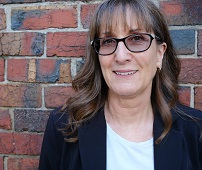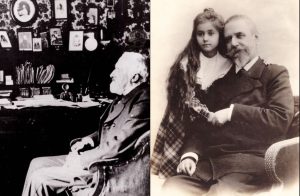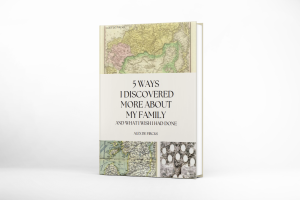If you think of it, our lives are built on stories. Our stories begin with our birth, our mothers relate tales of various levels of pain in labour; often our details are written down or at least discussed with family and friends, our length, weight, the colour of our eyes, how we fed, how we slept. Our stories continue as we grow, our first tooth, first word, first step, first day at school.
Our stories also rest on the building blocks of our ancestor’s stories. If our great great great grandparents hadn’t done this, or moved here, or worked in this job or the other, we might not exist. For example, if my father had immigrated to Canada as he had originally planned, instead of America where he ended up, I might not exist. If the Russian Revolution hadn’t taken place, my grandparents would have stayed in Russia and I probably would never have been born.
Similarly, our future is a product of our stories. Our decisions in life form the pathways for our future; what we study, the jobs we accept, the moral choices we make, all construct our future stories.
Most of us want to share or tell or write our stories. We firmly believe our stories will be interesting enough for everyone to hear. As a writer, I would love to know my stories are so fascinating that they will draw in a large audience. There are plenty of writers in the world whose stories do just this; JK Rowling, Stephen King, John Grisham, Dan Brown, to name a few. Their stories are popular, their books sell and are often turned into movies or television series. I can only dream of ever being as admired.
But here’s the catch, although we all have stories to tell, not everyone wants to hear them. Our family and friends might be interested in our birth and childhood, although I doubt repeated tales about how your mother barely made it through labour or how you were clever enough to walk early, would manage to hold your audience for very long. But I somehow doubt the rest of the world would care.
It is the same for other stories. Take the memoir I’m struggling to finish which deals with the rather fraught relationship I had with my father. I hope my sons will be keen to read about their grandfather, some of my friends will no doubt want to hear my story, there might even be others out there who have had similar issues with their parents who will pick up my book; but I doubt my story will ever make it to a best sellers list. I can always hope, but I also must be a realist. Yet I often hear of writers who complain about the lack of readers or interest in their story. Not everyone will be eager to read about the disease you fought, your efforts to rise above situations, your battles with racism, sexism, ageism, or your relationships. There is not likely to be a huge audience for yet another take on child wizards, supernatural horror or quests for the holy grail, especially if these stories are badly disguised copies. This is just how it is.
If you feel your story must be told or written, then please tell it or write it. A story which begs to be told or written, is an important story. But don’t expect anyone else to be interested. Write it for yourself. Because you are not only the writer of your story, you are also its most valuable reader.




This Post Has One Comment
Great advice, if you don’t tell your own story, it will never be heard.
And yes, I will be reading your story, and telling many others about it who I’m sure will be interested in reading it too.